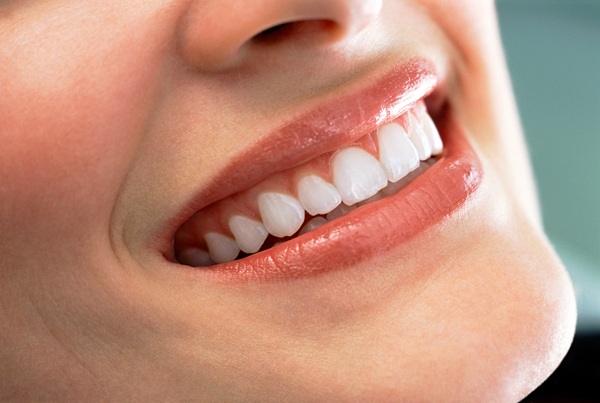Do you know that satisfying feeling when you bite into a crispy apple? Well, your teeth might not be as thrilled about it if they’re sensitive or you have bleeding gums. If you’re concerned about your dental issues and keeping your smile healthy, dental hygiene maintenance is the first step. Neglecting proper oral care can lead to a range of issues, including dental decay, gum disease, and the dreaded bad breath. In this comprehensive guide, we’ll look into useful dental hygiene tips to help you avoid such problems and keep your oral health in the best form. Read on to find out more.
Understanding the Basics of Oral Hygiene
Before exploring the ins and outs of a healthy smile, let`s demystify dental decay, periodontal disease, and bad breath so you’re armed with the tools to protect your smile.
Dental Decay (Cavities):
Decay, also known as cavities, is like an unwelcome visitor that sneaks into your teeth, especially after indulging in sugary treats or starchy foods. It’s caused by a combination of factors, including bacteria, diet, and oral hygiene practices. The bacteria naturally present in the mouth form a sticky film called dental plaque. These bacteria feed on sugars and starches from the foods you consume, producing acids as byproducts. Over time, these acids attack the hard outer layer of the tooth, causing it to weaken and break down. If left unchecked, these tiny holes in your teeth can grow into full-grown cavities.
The symptoms of dental decay can vary depending on the severity and progression of the condition. Early stages may be symptom-free, whereas when decay progresses, it can cause pain, sensitivity, gum swelling, and dark spots that evolve into cavities.
Periodontal Disease (Gum Disease):
Imagine your gums as the comfortable cushions around your teeth, holding them nicely in place. When strong and healthy, they support your teeth, preventing bacteria from entering the gum line. When weakened, they become more susceptible to gum disease.
Periodontal or gum disease is a chronic inflammatory condition that affects the tissues surrounding and supporting the teeth. The primary cause of gum disease is the accumulation of dental plaque, a sticky film composed of bacteria, food particles, and saliva, on the teeth and along the gum line. Inadequate oral care leads to plaque hardening into tartar, causing gum problems and inflammation.
In the advanced stage of gum disease (periodontitis), the gums can start to recede or pull away from the teeth, exposing the tooth roots and forming pockets. This can eventually result in tooth mobility and even tooth loss.
Bad Breath (Halitosis):
Have you ever had those moments of self-doubt where you want to check your breath to make sure it doesn’t smell? Bad breath, scientifically known as halitosis, generally occurs due to poor dental hygiene. The bacteria produce unpleasant odours that feast on the leftover food particles in the mouth. Bad breath can also be a signal of underlying dental issues, like decay or periodontal disease. So, not only is it about having a minty-fresh mouth, but it’s also a sign that your dental hygiene may need attention.
Why is Dental Hygiene Important? Key Facts
The health of our teeth and gums directly impacts our ability to eat, speak, and smile freely. Here are some facts to help understand the importance of maintaining oral hygiene:
Preventing Dental Problems
Practising good dental hygiene can save you from common oral health issues such as cavities, gum disease, and bad breath. If you start doing regular brushing, flossing, and dental check-ups, you can detect problems early for timely treatment, preventing them from progressing.
Systemic Health Connection
Your oral health is like a gateway to your whole body wellness. Poor dental hygiene increases the risk of infections in the mouth, which can potentially lead to bigger health issues, like heart disease, diabetes, and even respiratory infections.
Cost-Effectiveness
Regular dental care saves money. Preventive check-ups are cheaper than complex treatments. Good oral hygiene protects teeth, health, and your wallet!
Establishing Lifelong Habits
Teaching children the importance of dental hygiene establishes lifelong habits that contribute to their oral health. Learning proper brushing and flossing techniques at a young age can set them on a path to maintaining strong teeth and gums throughout their lives.
Aesthetic Appeal
Flashing a healthy smile adds some extra sparkle to your personal and professional interactions. Well-maintained teeth and gums are a sign of good hygiene and self-care.
Practical Dental Hygiene Tips to Keep Decay, Periodontal Disease, and Bad Breath at Bay
Fortunately, decay, gum disease and bad breath are easily preventable with good oral hygiene and preventive dental care. Here are some tips to help protect your oral health and ensure your smile retains its natural shine and brilliance:
- Brush Like a Pro
When it comes to brushing daily, technique matters. Brush twice daily with strong fluoride toothpaste and a soft-bristled brush. Try this technique to clean your teeth properly:
- Hold your toothbrush at a 45-degree angle to your gums.
- Use gentle, circular motions.
- Brush the outer, inner, and chewing surfaces of your teeth.
- Brush your tongue
- Rinse your mouth with water to remove loosened plaque.
2. Floss with Care
Dental floss reaches areas toothbrushes can’t, like between teeth and along gums. Regular flossing removes particles and plaque, reducing cavity risk. To floss effectively:
- Cut 18 inches of floss and wind most around the middle fingers.
- Hold between thumbs and guide between teeth using a sawing motion.
- Form a C-shape around the tooth and slide up and down.
- Clean both sides of each tooth.
- Unwind and repeat.
3. Choose a Balanced Diet
A well-balanced diet doesn’t just support your overall health; it also benefits dental health. Limiting sugary snacks and beverages should be the first step in dental hygiene maintenance, as they contribute to plaque formation and tooth decay.
4. Rinse for Freshness
Using a fluoride or antimicrobial mouthwash can be a worthwhile addition to your dental hygiene routine. Mouthwash helps reduce bacteria and freshen your breath. Fluoride in mouthwash strengthens enamel.
5. Stay Hydrated
Drinking water throughout the day is not only beneficial for overall health but also for maintaining oral hygiene. Water helps flush away food particles and bacteria, preventing plaque buildup and reducing the risk of bad breath.
6. Regular Dental Visits
Routine dental check-ups are essential for catching potential issues early and receiving regular cleaning.
At Bellevue Hill Dental, we recommend regular dental checkups to keep your mouth healthy. Regular visits ensure that we can keep a check on any potential oral issues, catching them at an early stage and reducing the need for extensive treatment. Planning dental checkups at least twice a year also helps remove plaque or tartar buildup, protecting your mouth from gum disease, infections or cavities.
7. Kick the Habit
Smoking and tobacco use not only stains teeth but also increases the risk of gum disease, oral cancers, and bad breath. If you smoke or use tobacco, quitting is one of the best decisions you can make to rank up your dental hygiene.
Find the Path to Oral & Overall Wellness with Bellevue Hill Dental Maintaining optimal oral hygiene is your passport to a healthier smile and better overall health. At our Clinic, we offer bespoke hygiene plans tailored to your oral and lifestyle needs. With preventive care to maintain your teeth and gums and targeted treatments to improve your smile’s health and appearance, we’re here to help you achieve a radiant smile for years to come.
Book a consultation today.



